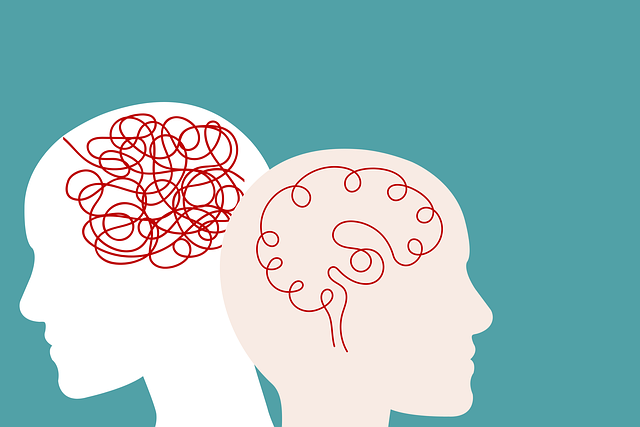Mental wellness programs, including Arvada Cognitive Behavioral Therapy (CBT), are powerful tools for holistic well-being. To evaluate their effectiveness, assessment methods should focus on program structure, activities, and outcomes. Quantitative techniques like pre-post tests and risk assessment tools measure improvements in stress management and self-compassion. Qualitative feedback from client testimonials reveals enhanced coping mechanisms, self-awareness, and confidence. Continuous evaluation is crucial for refining CBT programs, ensuring tailored interventions and maximizing long-term benefits.
Mental wellness programs are essential components of holistic healthcare, with cognitive behavioral therapy (CBT) emerging as a popular and effective approach. This article delves into the comprehensive evaluation methods employed to assess these programs, focusing on both quantitative and qualitative aspects. We explore successful cases like Arvada CBT, its techniques, and benefits, while also discussing how feedback from clients provides valuable insights. Ultimately, understanding evaluation results is key to refining and improving mental wellness initiatives, ensuring their longevity and impact.
- Understanding Mental Wellness Programs: A Foundation for Evaluation
- Arvada Cognitive Behavioral Therapy (CBT): Techniques and Benefits
- Quantitative Assessment Methods: Metrics for Program Effectiveness
- Qualitative Feedback and Client Testimonials: Uncovering Insights
- Continuous Improvement: Implementing Evaluation Findings in CBT Programs
Understanding Mental Wellness Programs: A Foundation for Evaluation

Mental wellness programs play a pivotal role in fostering holistic well-being and resilience among individuals facing various challenges. These programs are designed to address a multitude of issues, from managing stress and anxiety through techniques like Arvada Cognitive Behavioral Therapy (CBT), to cultivating compassion and boosting confidence. Understanding the core principles and objectives of these programs is essential for evaluating their effectiveness.
Effective evaluation methods require a deep dive into the program’s structure, activities, and intended outcomes. For instance, Compassion Cultivation Practices can be assessed by measuring participants’ reported levels of self-compassion and empathy post-program. Similarly, Confidence Boosting initiatives may be evaluated through pre-post tests gauging individuals’ self-esteem and assertiveness. Stress Management techniques, such as mindfulness exercises, can be assessed for their impact on reducing perceived stress levels and improving overall mental wellness.
Arvada Cognitive Behavioral Therapy (CBT): Techniques and Benefits

Arvada Cognitive Behavioral Therapy (CBT) is a highly effective approach to mental wellness, focusing on identifying and changing negative thought patterns and behaviors. This therapy method encourages individuals to challenge distorted thinking and develop healthier coping strategies. CBT techniques involve various tools such as cognitive restructuring, where patients learn to recognize and modify unhelpful thoughts, and behavioral activation, which motivates them to engage in activities that promote well-being. By breaking down complex problems into manageable parts, CBT aids in improving emotional regulation and stress management, providing individuals with practical skills to navigate life’s challenges.
The benefits of Arvada CBT are numerous, particularly in reducing the symptoms of various mental illnesses. It empowers individuals to take control of their thoughts and actions, fostering a sense of self-reliance and resilience. This evidence-based practice has been extensively studied and proven successful in managing conditions like depression, anxiety disorders, and even post-traumatic stress disorder (PTSD). Through CBT, participants learn to disengage from unhelpful behaviors associated with mental illness stigma reduction efforts, promoting better social integration and improved overall quality of life.
Quantitative Assessment Methods: Metrics for Program Effectiveness

Quantitative assessment methods play a pivotal role in evaluating the effectiveness of mental wellness programs, particularly when it comes to evidence-based practices like Arvada Cognitive Behavioral Therapy (CBT). These methods employ metrics and data collection techniques to gauge the impact and success of interventions. By measuring specific outcomes, researchers and practitioners can gain valuable insights into program performance and identify areas for improvement.
One key metric in CBT programs is tracking self-esteem improvement among participants. Self-report questionnaires and scales can assess changes in individuals’ perceptions of their own worth, abilities, and overall confidence levels before and after therapy. Additionally, risk assessment tools are employed to evaluate the potential for mental health crises or suicide attempts, providing critical data for professionals to adapt interventions and ensure patient safety during emotional healing processes.
Qualitative Feedback and Client Testimonials: Uncovering Insights

Qualitative Feedback and Client testimonials serve as powerful tools for evaluating mental wellness programs, particularly in the context of Arvada Cognitive Behavioral Therapy (CBT). These methods allow for a deeper understanding of clients’ experiences and perceptions, providing valuable insights into the program’s effectiveness. Through open-ended questions and personal accounts, participants can share their journeys, highlighting aspects like improved coping mechanisms, enhanced self-awareness, and increased confidence, all key outcomes associated with CBT.
Gathering qualitative data offers a nuanced view, especially when clients speak about how therapy has positively impacted their lives, including better stress management, improved relationships, and heightened cultural awareness. This feedback can guide healthcare providers in refining the program to cater to individual needs more effectively. For instance, incorporating mindfulness meditation practices, enhancing cultural competency training for providers, and tailoring sessions to boost client confidence are strategies that emerge from such rich narratives.
Continuous Improvement: Implementing Evaluation Findings in CBT Programs

In the realm of Arvada Cognitive Behavioral Therapy (CBT) programs, continuous improvement is paramount to ensuring effectiveness and long-lasting benefits for participants. Evaluation findings serve as a powerful tool for enhancing these therapies. By regularly assessing program outcomes, therapists can gain valuable insights into what aspects of CBT resonate most with individuals and identify areas that require refinement. This iterative process fosters a dynamic learning environment where the therapy itself evolves to better meet the diverse needs of those seeking mental wellness coaching.
Integrating evaluation data into CBT programs facilitates informed decision-making. For instance, if a particular technique or module consistently demonstrates high success rates in reducing anxiety symptoms, it becomes a cornerstone of future sessions. Conversely, elements that prove less effective can be adapted or replaced with alternative strategies, such as incorporating conflict resolution techniques from Public Awareness Campaigns Development to address interpersonal challenges stemming from mental health struggles. This adaptive approach, driven by evidence-based evaluations, ultimately contributes to the overall development and refinement of CBT programs, making them more impactful and accessible.
The evaluation of mental wellness programs, such as Arvada Cognitive Behavioral Therapy (CBT), is a multifaceted process that combines quantitative and qualitative methods. By employing metrics for program effectiveness, gathering client testimonials, and continuously improving based on these insights, CBT initiatives can optimize their impact. This comprehensive approach ensures that the Arvada CBT program not only meets but exceeds expectations in supporting individuals’ mental health journeys.














